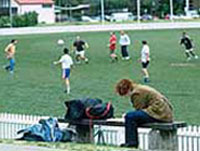|
|||||||||||||||||||||||||||||||||||||||||||||||
| Foundation of Facilitation - LAWS8077 | |||||||||||||||||||||||||||||||||||||||||||||||

Description In a multi-dimensional society there is a need for groups to work together to deliver projects. These groups either need to build consensus for their decisions or vote by a majority. Examples include leadership committees, investigations and Boards. These groups are generally led by a facilitator in the role of chairperson or in some other capacity. The role and expectations of the facilitator varies between groups and projects, and the skills required vary accordingly. This course provides an exploration of the different contexts within which facilitation is used and an examination of the theoretical constructs. It is designed to provide students with an opportunity to have a greater insight into how dispute resolution skills can be applied in the broader community.
LLM Specialisations Recommended Prior Knowledge none
Main Topics
Course Aims The aims of the course are to ensure that you are familiar with the central principles of:
Learning Outcomes Consistent with the aims of the course as above, the learning outcomes expected on the completion of this course include:
Assessment Class participation (30%)
Outline of Essay (10%) Essay (60%) Course Texts Recommended Reading
Christine Hogan, Understanding Facilitation: Theory and Principles (2002, Kogan Page Publishers) Sandy Schumann (ed) The IAF Handbook of Group Facilitation. Best Practices from the Leading Organizations in Facilitation (2005, Jossey Bass) Additional Information The next course to build directly on these skills is LAWS8981 Mastering Facilitation, a workshop for those who want practical hands on experience with facilitation.
|
|||||||||||||||||||||||||||||||||||||||||||||||


